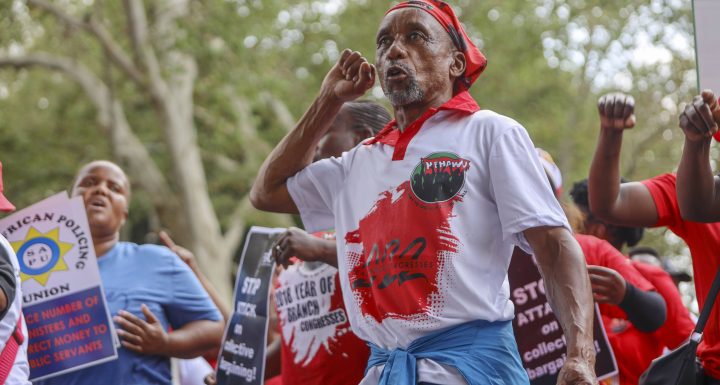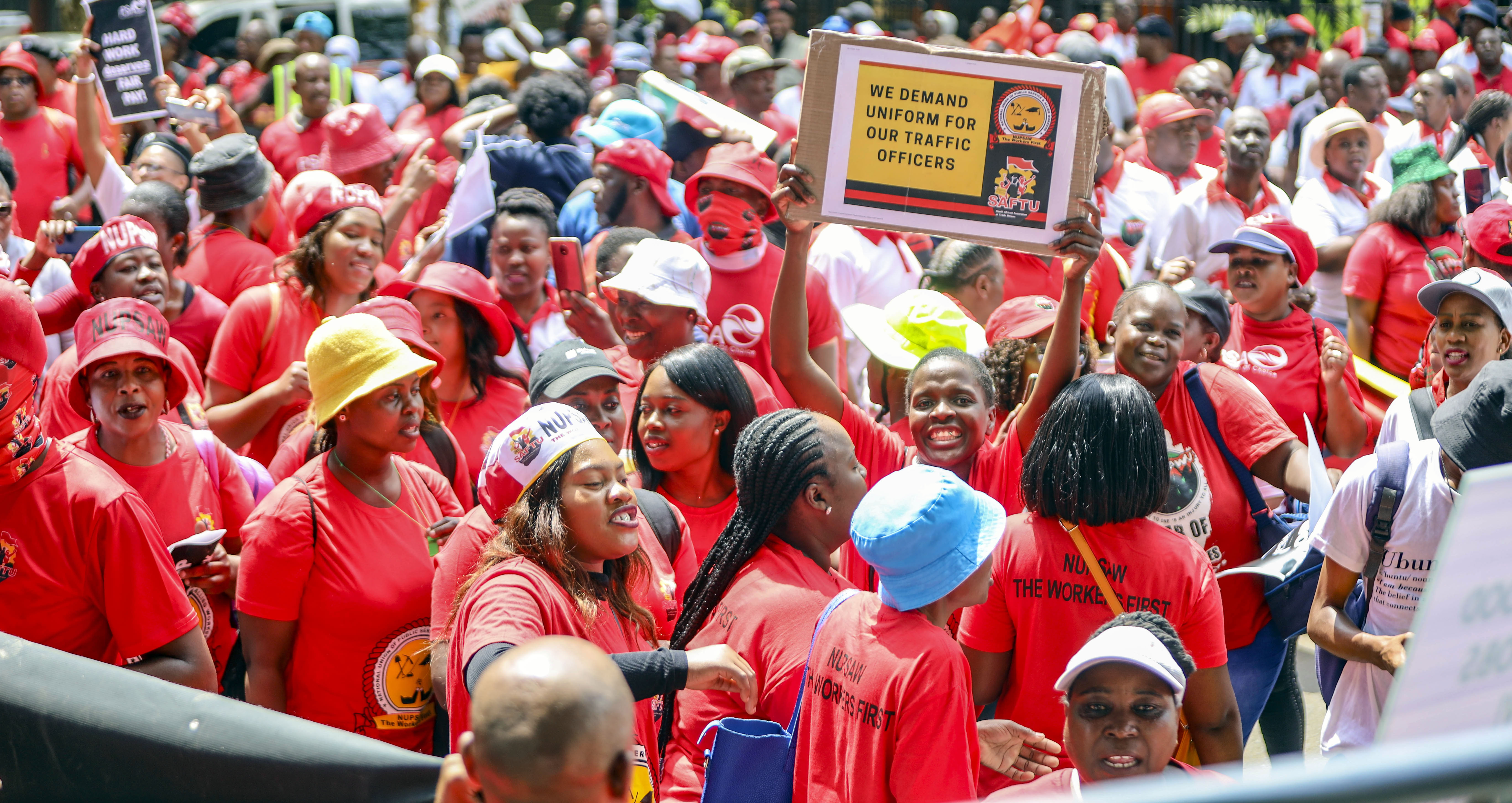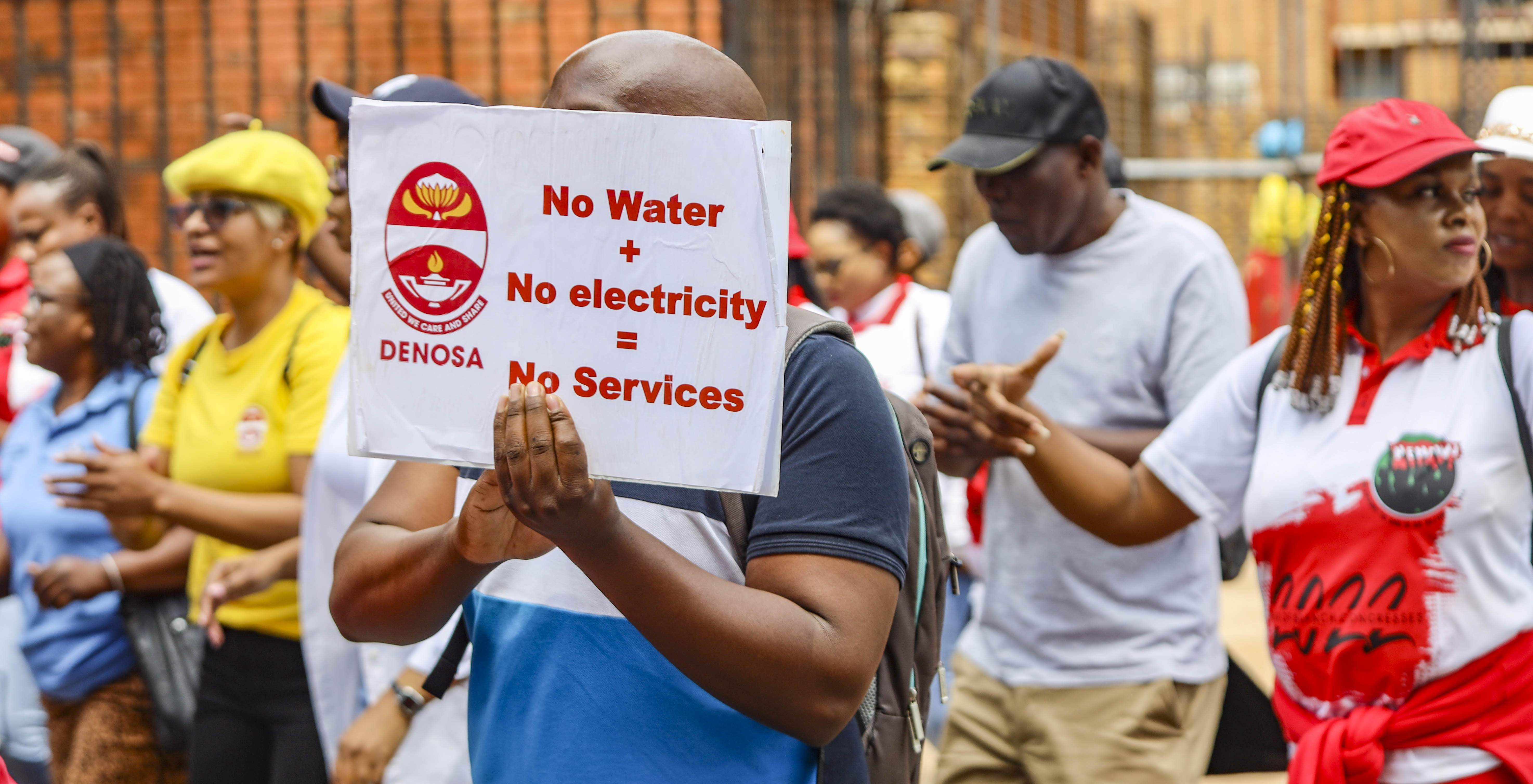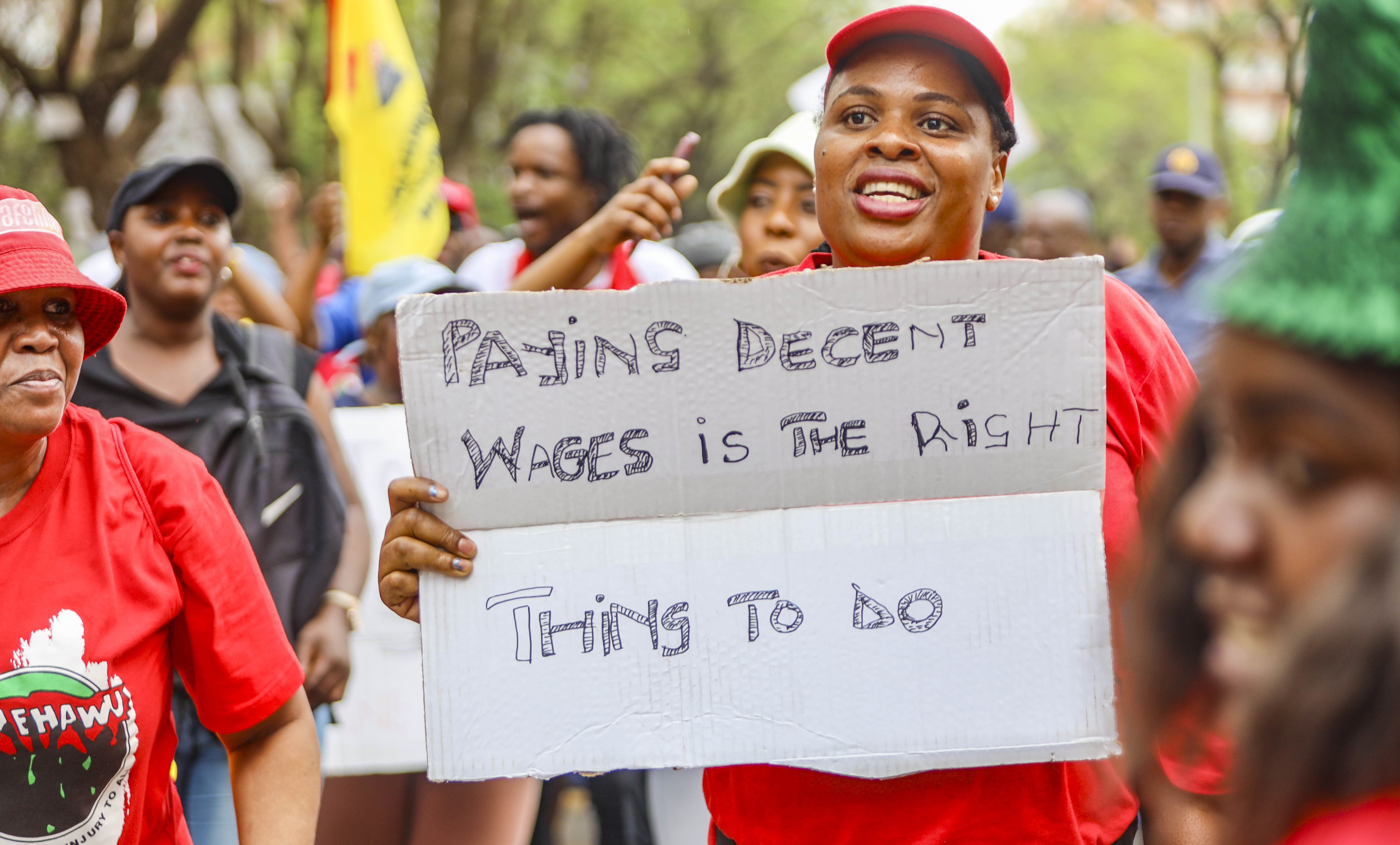LABOUR PAINS
Seven-day deadline: Public sector trade unions warm up for indefinite strike

Public servants affiliated with trade unions returned to their original demand of a 10% pay rise, initially tabled when pay talks with the government began in May. If the government doesn’t agree to their demand in the next seven days, the workers say they will embark on a full-blown strike on 2 December.
Public servants downed tools on Tuesday and renewed their demand for the government to award them inflation-beating wage increases within the next seven days. The alternative is a full-blown strike.
In Gauteng, thousands of public servants ditched their posts to picket in Pretoria, the country’s capital and nerve centre of government, as most of its facilities and operations are based in the city.
Workers in the Public Sector are fed up with the government exploiting and abusing them, they have embarked on a #NationalDayOfAction #PublicSectorStrike demanding a #LivingWage @TreasuryRSA #GautengProvince pic.twitter.com/Mg5G2XCwOV
— Keletso Mkhwanazi (@keletsomk) November 22, 2022
The march began in Burgers Park on Lillian Ngoyi Street and proceeded to the National Treasury office on Church Street, with stops in between, which caused traffic to build up in the Pretoria central business district. The Gautrain bus route that passes through the CBD was affected.
Public servants, including administrative staff and healthcare workers (mainly nurses), joined the protest action, which ended outside the National Treasury’s offices, where two streets were cordoned off, causing traffic chaos in the city during lunchtime.

Public sector workers protest in Pretoria on 22 November 2022. Public service unions are calling for a 10% wage increase. (Photo: Gallo Images / OJ Koloti)
Public servants belonging to at least seven trade unions were united in their rejection of the government’s move to unilaterally implement a 3% pay rise this year.
The unions include the National Education, Health and Allied Workers Union (Nehawu), the Police and Prisons Civil Rights Union (Popcru), the Democratic Nursing Organisation of SA (Denosa), the South African Policing Union (Sapu), the Health and Other Service Personnel Trade Union of South Africa (Hospersa), the National Union of Public Service and Allied Workers (Nupsaw) and the Public Servants Association (PSA).
Visit Daily Maverick’s home page for more news, analysis and investigations
In a coalition, the unions represent about 800,000 public servants, or 62% of the total public servants in the country (1.3 million).
Public servants affiliated with the unions returned to their original demand of a 10% pay rise, initially tabled when pay talks with the government began in May 2022. The demand is above consumer inflation, which measured 7.5% in September.
Just last week, public servants were willing to settle for a 6.5% increase, until the government’s “misleading” final offer of 7.5%, which is broken down into two components: a 3% salary increase and a R1,000 cash allowance, which equates to a 4.5% increase for the lowest-paid workers.
Read more in Daily Maverick: “Bringing SA to a halt — 800,000 public servants set to go on wage strike”
According to a protester who did not want to be named, they had gone back to their initial 10% demand because the government had missed another seven-day ultimatum and had been “arrogant” in the negotiations.

Public servants, including administrative staff and healthcare workers (mainly nurses), joined the protest action in Pretoria on 22 November 2022. (Photo: Gallo Images / OJ Koloti)
Another protester said: “Life in South Africa is very expensive. A mere 3% increment is nothing. We are no longer just fighting for a decent wage; we are fighting to keep the right to bargain in the face of continuous efforts by the government to undermine bargaining. Give us Phala-Phala money, done deal, case closed!”
The unions submitted a memorandum of demands outside the Treasury’s office, which was received by the acting Public Service and Administration Minister, Thulas Nxesi.
The memorandum requirements include that the government respond to the demand for a 10% pay rise within seven days, failing which the unions will embark on a full-blown, indefinite strike starting on 2 December.
“Today [the protest action in Pretoria on Thursday] was just the beginning and a warning shot to the government to show it that we are capable of going on a strike that can shut down public services,” December Mavuso, the deputy general secretary of Nehawu, told Daily Maverick.
The unions were recently awarded strike certificates by the Public Service Coordinating Bargaining Council (PSCBC), which allows them to embark on a legal strike after giving the government a seven-day notice.
Upcoming ANC elective conference
Union bosses from the Nehawu, Nupsaw and the PSA told Daily Maverick that their members are prepared to ratchet up the strike action for it to reach the ANC elective conference, which is scheduled to run from 16 to 20 December at Nasrec in Johannesburg. Cyril Ramaphosa hopes to be re-elected as party president.
“We will meet Cyril toe-to-toe and make our demands known to him,” said PSA general manager Reuben Maleka. His views were supported by Nehawu’s Mavuso and Sibusiso Nkasa, the Gauteng provincial chairperson of Nupsaw.

Public sector workers make their demands known during a protest in Pretoria on 22 November 2022. (Photo: Gallo Images / OJ Koloti)
But one union boss who didn’t want to be named admitted that public servants don’t have an appetite for a prolonged strike due to the financial hardships they face, caused by the rising cost of living.
If public servants were to embark on a sustained strike, they would have to sacrifice a lot of money as the government tends to implement a no-work, no-pay policy. The union boss expressed doubts about public servants emulating the 20-day 2010 strike, which paralysed schools and hospitals.
More talks
Within the next seven days, the unions want the government (mainly Nxesi) to restart talks with them at the PSCBC to table a new pay rise offer, which explicitly states that public servants would be awarded a 10% increase. The PSCBC is where the government and trade unions negotiate the conditions of employment in the public sector.
But labour relations in the public sector have deteriorated because, in early November 2022, the government unilaterally implemented a 3% pay rise (backdated to April) while negotiations with trade unions were ongoing.
Underlining the strained relations is that Nxesi was heckled by public servants on Tuesday and was refused a platform to speak.
The dispute over pay rises has also disrupted the schedule for negotiations in the public sector. November and December are usually the months in which trade unions start making their wage demands known to the government for the following year. The demands are usually implemented during the start of the government’s new fiscal year, starting 1 April.
But Nupsaw’s Nkasa said the trade unions cannot begin to start pay negotiations for 2023 when “demands for 2022 have not been concluded or implemented”. DM



















 Become an Insider
Become an Insider
I would like to see some factual analysis added to this conversation. What are the median salaries for public sector workers, and how do they compare to equivalent positions in the private sector – corporate as well as SME business levels.
Why? Because businesses survive through delivering service and profits, and business employees mostly understand that they need to deliver results or the business will simply go bankrupt and they will not have a job anymore.
The key difference is that the public sector cannot go bankrupt if it does not deliver security, so there is no skin in the game for public servants to deliver results – whether they do or not, their jobs are always there. And it is unlikely that they will get fired for non-performance.
If they are getting equal pay to those in the private sector who carry a lot more risk of losing their salaries, I have sympathy for their plight. If they are getting paid more AND carry less risk of losing their jobs, then they should tighten their belts just like all the rest of us that do not have safe cushy government jobs (or have no jobs at all)